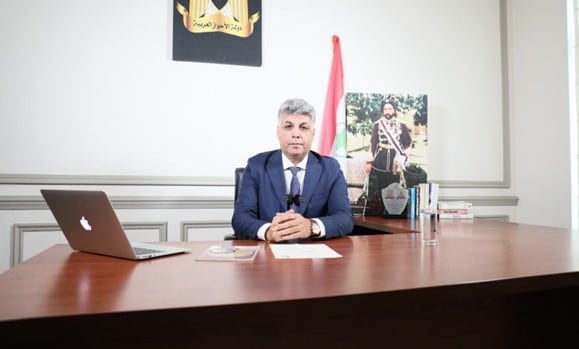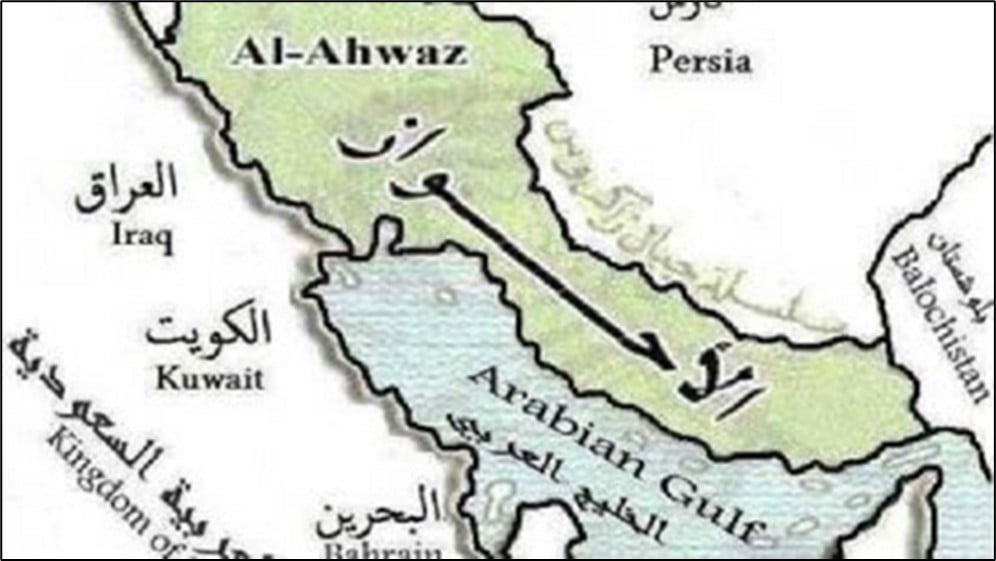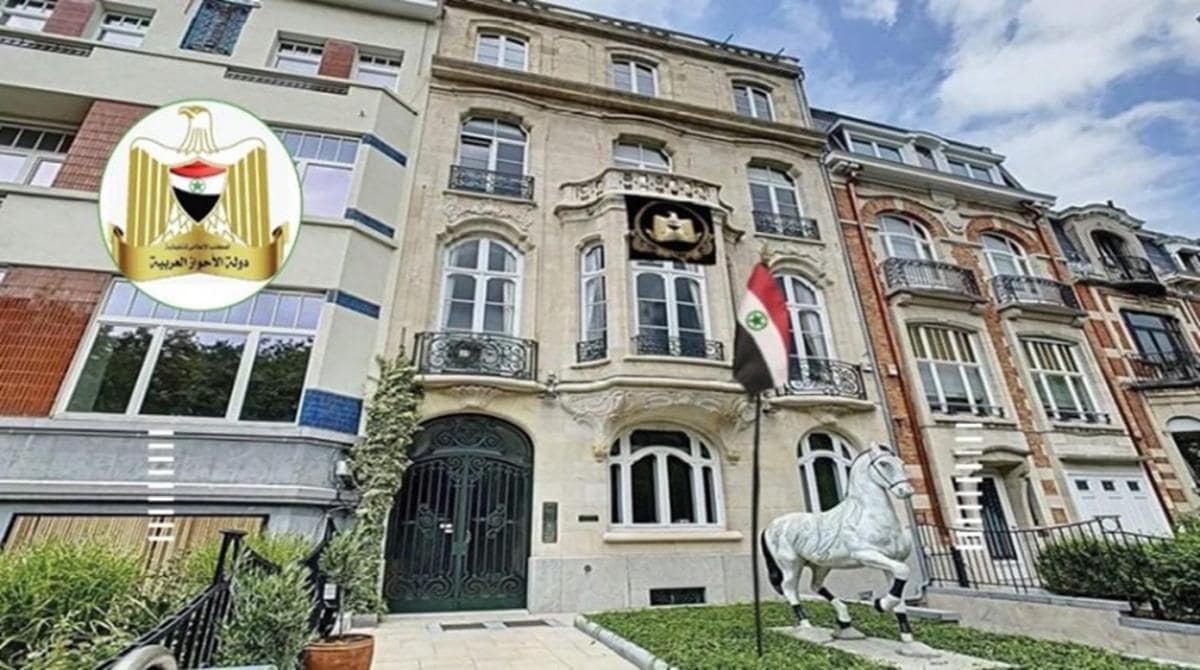MEMRI is honored to present the article by the Chief Executive Officer of The Ahwaz, Dr. Aref Al Kaabi, about his dream of a free Al-Ahwaz.
Today, the Arab region of Al-Ahwaz (see Appendix) is under the dictatorship of the Islamic Republic of Iran, which, like the previous Pahlavi regime, is repressing, marginalizing and discriminating against non-Persian ethnic groups.
Contemporary Iran, like medieval Iran, is not a country but a heterogeneous, multinational, and multilingual empire. In Iran, Persians make up half of the country's population, while the other half comprises non-Persian ethnic groups (Kurds, Balochs, Azeris, Arabs, Turkmen, Lurs, and Caspian ethnic groups), which maintain a strong ethnic identity that distinguishes them from Persians.
The modern history of the country has been characterized by brutal attacks on the non-Persian ethnic groups, which have been prevented, by a succession of rulers, from enjoying political and cultural rights. Since the foundation of the modern Iranian nation-state in 1925 by Reza Shah, who institutionalized "Persian supremacism," the ethnic stratification of Iran, comprising a dominant Persian core and a marginalized periphery of non-Persian ethnic groups, has become increasingly evident.
National diversity and the rise of ethnonationalism have been perceived by the successive regimes in Tehran as a serious threat to the Iranian state's territorial integrity and national security. However, days before he left the country in January 1979, the last Shah of Iran predicted that Iran would be divided into different countries.[1]
The key to the fall of the ayatollah's regime in Iran lies with the non-Persian ethnic groups that have been marginalized and violently repressed over the years. Since the mid-2000s, after a series of violent clashes between the Islamic Republic of Iran and the various non-Persian ethnic groups in the country, Iran's military and political elites have feared a possible "hybrid war" scenario against the Islamic Republic. Such a hybrid war would comprise widespread national protests coinciding with an external military attack.
Below is Dr. Aref Al Kaabi's article:

Chief Executive Officer of The Ahwaz Dr. Aref Al Kaabi
I have a dream.
I dream of living on my homeland as a respected citizen without racial discrimination and not under the oppression of the Persian occupation.
I dream of learning my Arabic language with my children and grandchildren, without being deprived of practicing our Arabic traditions, heritage, and culture, of naming our children with Arabic names, and of wearing our Arabic attire in schools and public institutions, without being humiliated or belittled for being Arab.
I hope that my innocent brothers, relatives, and friends will be released from Iranian prisons, and that we will have job opportunities like the Persians.
I dream of living in a democracy with real representatives for us in a true parliament.
I dream of living a prosperous life like Arabs in Kuwait, Saudi Arabia, and the UAE. Yet I fear the downfall of the discriminatory Iranian regime, disguised in Islam, as it will not leave without setting the land ablaze, causing chaos, and seeking revenge on us, as happened in Iraq and Syria! So I feel caught between two fires.
However, God willing, Al-Ahwaz will gain independence smoothly, with the help of friends and in accordance with international law, which Persia violated in 1925 when it occupied our independent country and killed our sheikh and leader in captivity. After World War I, the British wanted to strengthen Iran against the Soviet expansion by granting it Al-Ahwaz, but today, ironically, Iran has become an ally of Russia and China!
I dream of the wealth of my land – rich in oil, gas, fresh water, agriculture, and coastlines – returning to us. My homeland is vast, comparable in size to the state of Montana in the U.S., and today we are around 12 million people (with some 5 million more Arabs outside of Al-Ahwaz). Most of us are Shi'a, and among us are Christians and Jews.
I dream of freedom and independence, for only then will Iran become a poor, marginal country in the region, without ports, and the Al-Ahwaz-controlled Strait of Hormuz will be free from Iranian control. This will rid the region of Persian hegemony and its interference in neighboring countries, cutting off Iran's nuclear military project, and we will live in peace!
Chief Executive Officer of the Ahwaz
Dr. Aref Al Kaabi
Appendix: Theft, Marginalization, Repression, And Destruction Of Identity: The Outcomes Of The Mullah Regime's Rule Over Ahwaz, Ahwazstat.org, October 27, 2024
Chairman of the Executive Committee of the State of Ahwaz Dr. Aref Al Kaabi insisted on using not the term Khuzestan, but Ahwaz.[2] The Ahwaz region was named Khuzestan by the order of Reza Shah, which means the land of forts and castles, in order to detach it from its history and indigenous people.
Ahwaz is located in the southwest of Iran. It is of strategic importance, since it is situated at the shores of the Arabian Gulf. The area of the region, before Iran cut off parts of it and annexed it to some Iranian cities, amounted to about 375,000 square kilometers, but now its area is 348,000 square kilometers.
Below is an article describing the discrimination that are facing the Ahwazi people under the Iranian regime:[3]

(Source: Ahwazstat.org)

Ahwaz Executive Headquarters in Brussels. (Source: Ahwazstat.org)
The Arab region of Ahwaz is rich in natural resources and has a long-standing history spanning centuries. However, this region suffers from ongoing exploitation and the destruction of its heritage by the Iranian occupying regime, which seeks to erase the Arab identity of the province.
The State of Arab Ahwaz holds significant economic importance due to its natural resources, particularly oil and gas. Statistics indicate that Ahwazi oil accounts for a substantial portion of Iran's total exported oil.
Iranian authorities deliberately alter the region's demographics by displacing Ahwazis and resettling other ethnicities, according to an official document leaked from the presidential office earlier. Additionally, rivers have been dried up and water supplies cut off from agriculture and drinking water sources, leading to widespread protests.
Ahwazis face discrimination and repression, being barred from working in oil facilities and encountering difficulties in securing job opportunities and promotions.
Repression has led to the deaths and wounding of dozens by Iranian regime forces.
There are international calls to respect Ahwazi rights and recognize their right to self-determination, including demands for a referendum and an end to the Iranian occupation.
[1] Alam Saleh. Ethnic Identity and the State in Iran. Springer, 2013.
[2] Albalad.co/wawancara/2021A11254/the-ahwazi-people-fight-for-their-independence-from-iran/, July 23, 2024.
[3] Ahwazstat.org/en/theft-marginalization-repression-and-identity-destruction-the-outcomes-of-the-mullah-regimes-rule-over-ahwaz/, October 27, 2024.





